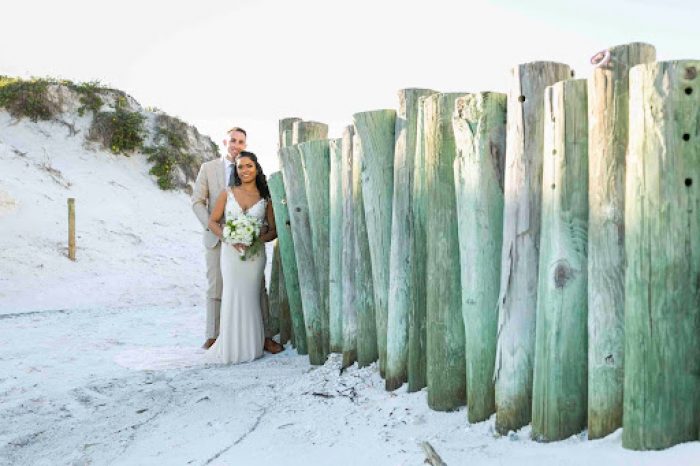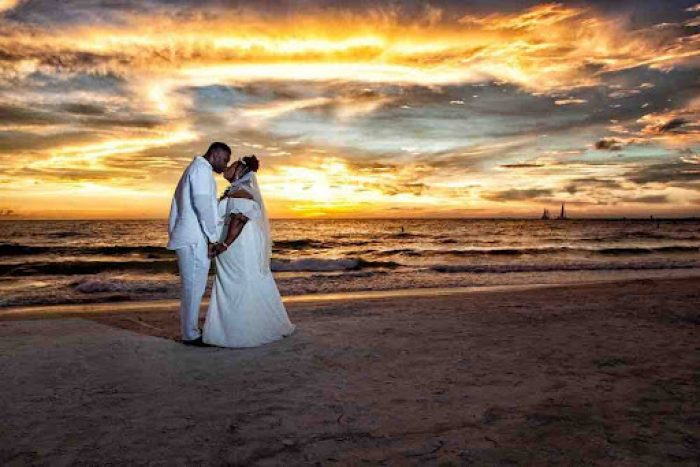The wedding industry has seen significant changes over the past few years, driven by shifts in technology, trends, and global events. If you planned a wedding in 2019 or are currently planning one for 2024, you’ll notice some stark differences. Let’s explore what it was like planning a wedding in 2019 compared to today in 2024.
- Technology and Digital Integration
2019:
In 2019, technology was already playing a significant role in wedding planning. Couples used wedding websites, social media, and planning apps to organize their big day. However, the use of technology was more about convenience than necessity.
2024:
By 2024, technology has become integral to the wedding planning process. Drones and AI-driven planning apps have revolutionized how couples prepare for their weddings. Virtual weddings and hybrid events (combining in-person and live streaming) are now common, allowing guests from around the world to participate without traveling.
- Trends and Styles
2019:
Wedding trends in 2019 focused on rustic chic, bohemian themes, and DIY elements. Couples preferred intimate settings, farm-to-table catering, and personalized décor. Sustainable weddings were gaining traction, but not yet mainstream.
2024:
In 2024, sustainability is a major focus. Eco-friendly weddings with leave no trace policies, locally sourced flowers, and digital invitations are highly popular. Minimalist and modern themes have taken center stage, with sleek designs, bold colors, and innovative uses of space. Personalization remains important, but with a stronger emphasis on meaningful choices. See Gulf Beach Weddings proprietary Beach WeddingStudio
- Health and Safety Considerations
2019:
Health and safety were not primary concerns in wedding planning in 2019. Standard considerations included dietary restrictions and basic first aid provisions, but there was no overarching need for extensive health measures.
2024:
The COVID-19 pandemic has had a lasting impact on how weddings are planned. In 2024, health and safety are paramount. Venues are equipped with sanitation stations, and many couples provide guests with personalized masks and hand sanitizers. Outdoor weddings and well-ventilated venues are preferred, and hybrid formats are used to reduce crowd sizes and accommodate vulnerable guests.
- Guest Experience
2019:
In 2019, the guest experience centered on entertainment, good food, and memorable interactions. Photo booths, live bands, and signature cocktails were popular ways to engage guests.
2024:
By 2024, guest experience has expanded to include virtual participation options, interactive digital elements, and enhanced personalization. Live streaming of ceremonies, virtual guest books, and interactive apps for guests to share moments in real time are now common. Additionally, there’s a stronger focus on creating inclusive experiences for guests with varying needs and preferences through Social Media.
- Budgeting and Costs
2019:
Weddings in 2019 often followed traditional budgeting methods, with significant expenses allocated to venues, catering, and attire. Many couples relied on spreadsheets and basic apps for budget management.
2024:
In 2024, budgeting tools have become more sophisticated, using AI to provide real-time cost adjustments and recommendations. The rise of micro-weddings and elopements has shifted some budgeting dynamics, with more couples opting for smaller, more personalized celebrations. Prices have increased on most items 25%+ over the past 5 years. This does not include travel, lodging, etc.
- Vendor Relationships
2019:
In 2019, building relationships with vendors was a mix of in-person meetings and online research. Trust and personal connections were key to securing reliable vendors.
2024:
Vendor relationships in 2024 are heavily influenced by technology. Virtual consultations and digital contracts are standard, and many couples use AI-powered platforms to find and book vendors. Reviews and social media remain important, but there’s a stronger reliance on digital portfolios and virtual walkthroughs.
Planning a wedding has evolved significantly from 2019 to 2024. While the core essence of celebrating love remains unchanged, the tools, trends, and considerations have adapted to a rapidly changing world. Whether you’re nostalgic for the simpler times of 2019 or excited about the innovations of 2024, each era offers unique advantages and challenges. Embrace the changes and create a wedding that reflects your values and vision in today’s ever-evolving landscape.























